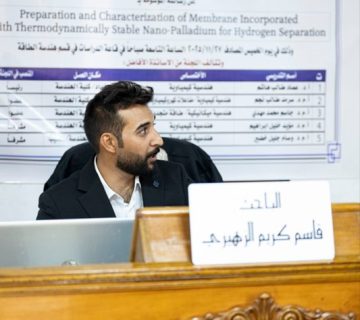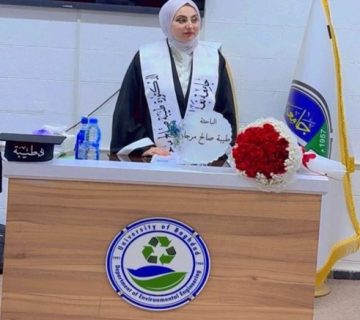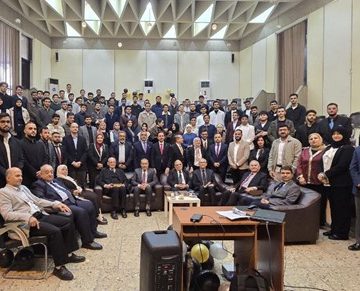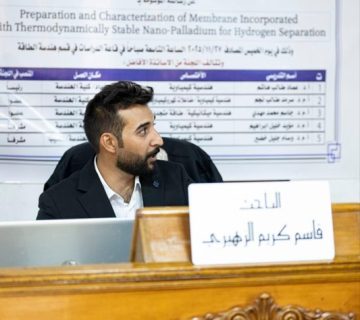The College of Engineering at the University of Baghdad witnessed the public discussion of the master’s student (Marwa Jawad Badr) from the Civil Engineering Department on his thesis entitled (Evaluating the Moisture Susceptibility of Asphalt Mixtures Containing Recycled Concrete Aggregate and Modified by Polyphosphoric Acid) on Monday, 20/5/2024, in Dr. Khaled Shaker Hall. Under the supervision of (Prof. Dr. Mohammed Qadir Ismael)
This research aims to evaluate the sensitivity to moisture in hot asphalt mixtures that contain recycled coarse aggregate, treated and untreated, and asphalt grade (40-50) modified with (PPA) in proportions (1%, 2%, 3% and 4%) by the asphalt weight. This work showed that mixtures with modified asphalt using (PPA) by 3% achieved the typical Marshall properties at the optimal asphalt content of 4.8%, while in mixtures made with virgin (unmodified) asphalt the optimum asphalt content was 4.9%. RCA was used in different proportions (25%, 50%, 75% and 100%) as a substitute for raw coarse aggregate, and the effect of treatment on improving the quality of RCA was evaluated. Volumetric properties associated with the Marshall test for asphalt concrete were tested. Tensile strength ratio (TSR) and index of retained strength (IRS) measurements were used to assess the moisture effect. The study’s findings indicated that 25% RCA is the maximum amount of RCA from concrete that should be added to asphalt mixtures. This percentage recorded higher values for TSR and IRS, with the ideal modified asphalt content being 4.86%. Based on the results of this work, asphalt concrete’s susceptibility to moisture decreased and using treated RCA led to better results than untreated RCA, and using asphalt modified with PPA remarkably improved this inferior performance.
The research came out with a set of recommendations, including studying effect of PPA on the ageing properties of bitumen mixture, examine the effect of PPA on the behavior of bituminous binder mixtures, and evaluate the fatigue crack and permanent deformation (rutting) of RCA mixtures.
After scientific discussion by the respected members of the discussion committees and listening to the researcher’s defense, the researcher obtained a master’s degree in civil engineering/Roads and Transportation with a grade of (Excellent)








